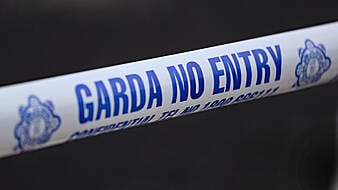Evidence from the Jill Dando ‘execution’ was cited at the Court of Appeal on Friday as a gunman attempted to have his conviction for murder quashed.
Keith O’Neill (46), formerly of Lissadell Drive, Drimnagh, Dublin, but now a prisoner at Wheatfield Prison, had pleaded not guilty to shooting dead John Wilson (35) on September 28th, 2012, at Mr Wilson’s home on Cloverhill Road, Ballyfermot, Dublin 10.
A jury found him guilty, however, and he was sentenced to life by Mr Justice Tony Hunt at the Central Criminal Court in May 2015.
Lawyers for O’Neill later claimed Mr Justice Hunt should not have allowed evidence from a forensic expert regarding the presence of gunshot residue found on clothes O’Neill had dumped in a skip to go before the jury and launched an appeal against the conviction.
Firearms discharge
In a submission to the appellate court, Ronan Munro SC, for O’Neill, described how a single particle of a firearms discharge residue, located in the internal right pocket of a coat found hanging on the Barry George’s kitchen door, had helped convict the Englishman of Ms Dando’s murder.
The BBC presenter had been shot dead as she stood on the doorstep of her house in south London in April 1999, in what was widely described as an ‘execution-style’ killing.
Mr George, who has family in Cork and Limerick, was found guilty of Ms Dando’s murder following a trial in 2001, but he successfully appealed against the conviction and was acquitted in 2008.
Commenting on Mr Munro’s submission, Mr Justice John Edwards, presiding, said new guidelines published in England in the wake of the Dando case had recommended that evidence pointing to the presence of small amounts of gunshot residue should be “approached with caution”.
Responding to Mr Justice Edward’s remarks, Conor Devally SC, for the Director of Public Prosecutions, said the guidelines were only proposals at this stage and were yet to become established protocols.
'Seek and preserve'
At a previous hearing, Mr Munro claimed the “kernel of the case” against his client had been circumstantial gunshot evidence.
“And had it not been made available to the jury, there would not have been a conviction,” he added.
Mr Munro also submitted that gardaí had failed to “seek and preserve” gunshot residue evidence, which meant the trial had been unfair.
An unsealed carrier bag containing clothes – which gardai had observed being dumped in a skip by O'Neill – was later retrieved by an armed garda and placed in the footwell of a patrol car used by firearms officers, counsel explained.
The evidence, Munro continued, had been handled in an environment where “potential contamination” from armed members of the gardai could have occurred.

“My client is sitting there on a life sentence and thinking, ‘if the gunshot evidence hadn’t gone in, would I be sitting where I am?’,” Munro added.
Counsel also pointed out that the victim’s young daughter, who was an eyewitness to the shooting, had said in evidence that the gunman had been “fat”.
“My client was a very lean person at the time,” Mr Munro said.
Judgment in the appeal, which was heard before Mr Justice Edwards, sitting with Mr Justice Patrick McCarthy and Ms Justice Isobel Kennedy, was reserved.







